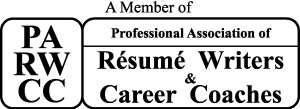Sometimes I like to write articles about questions I ask my clients. One of those questions is a common one asked throughout your life, especially in high school and at job interviews.
Where do you see yourself in 5 years or what do you see yourself doing in 5 years?
Some of us might find this question redundant or pointless. In reality, this question helps establish the basis for your goals. If you follow the information and insights I give you in the articles I write, you know I always try to show you how to take advantage of questions to bring the focus back to you. You must take any opportunity you are presented with to show your potential employer how you can benefit the company.
This question is yet another opportunity to once more distinguish yourself from your competition and other well-qualified candidates. If you have researched the companyfor which you are interviewing, as you always should, then you should have a good idea of where or what you see yourself doing in five years. Your response should paint a picture of a vision that aligns with the company’s long term objective. To do this, you must have researched the company. Some candidates are not chosen for a second interview because they did not research the company. Employers can pick up on this lack of preparation and interest.
The purpose of this question is to see if your plans align with the objectives of the department or the goals. For instance, if you know the company is considering expanding to another country and you would be open to relocating to another country in five years, then the company can relocate you to do the work you would have already done. In this case, you can mention your willingness to relocate. This would be a great match between you and the company, but you would need to be certain the company is thinking of expanding. It would be something the management team has expressed to you at some point during the interview.
Asking the interviewer this question at the end might also be a good idea. You can phrase the question like this, “Where or what do you see the new (name of position) doing five (or maybe even 3 or 4) years from now?” The information you receive from the interviewer’s answer can help formulate the main idea for your next interview meeting and it can be a topic you can briefly mention in the personalized thank you letter you should send within 24 hours of your interview.
So, when an employer asks you where you see yourself in five years, you can respond:
“In five years I would like to have achieved XYZ goals in this department and possibly serve the company as (name of position, typically a promotion).”
“In five years I would like to have expanded the company’s market from X number of geographical areas to Y number by doing XYZ.”
If your resume shows a good depth of longevity, then you can approach your answer like this:
“In one of my previous employers, I was at (XYZ) stage within 5 years. I can see myself in a similar stage of success at this company as well.”
Some of my clients are ready to secure their final job 10 years prior to retiring. If you are in a similar stage, then growing and advancing within the same company is where you might see yourself in five years.
In all, answering interview questions is a creative skill that requires training and practice. Train yourself to use as many questions as you can to make yourself shine. Practice doing this. The art of it lies in giving an answer that focuses on you and what you have done for employers. This will help create a story in the interviewers mind that connects you with their company.
Some questions might even lead to a response that can place you in a negative light, but this is where your creativity needs to kick in even more. Similar to the answers given to questions presented in presidential debates. Some of those questions reference a negative action or characteristic of the candidates; however, they manage to respond in such a way that makes them look good. This is a good strategy you should apply when answering interview questions.
[[If you are at an age where you feel you should stop dreaming of achieving new goals, then think again. At 66 years of age, Colonel Sanders founded KFC. At 73 Ronald Reagan was re-elected as President of the United States. Do not let your age discourage you from setting goals and creating a 5-year vision.]]In the beginning of this article, I mentioned asking my clients where they see themselves in five years. In addition to this being a common interview question, the reason I ask this question is to learn how organized and planned my client is with his professional and personal life. Sometimes the two can relate. I want to know how far ahead this person has envisioned his life and connected his current goals with future ones. This will allow me to have an idea of my client’s current and future goals while I develop and create their resume.
I want to create a resume that will help my client now, as well as one that will continue to be developed for future goals.
Click here to select your new career portfolio.
0 – 10 Years 11 – 20 Years 21 – 30 Years 31+ Years

Yuleni Pulido: Professional Resume Writer
Click here to send me a message
OrganicResumeCreations@gmail.com
Member of Professional Association of
Resume Writers & Career Coaches
